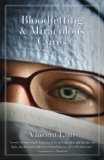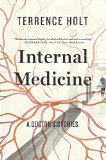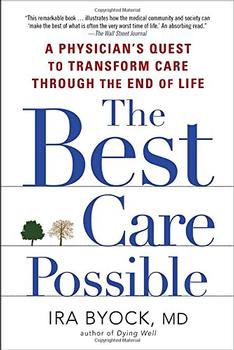Summary | Excerpt | Reading Guide | Reviews | Beyond the book | Read-Alikes | Genres & Themes | Author Bio

Stories
by Vincent LamLam's first book, a collection of
interconnected short stories, opens with "How To Get
Into Medical School, Part 1, a story which at first
glance treads familiar territory - an Asian girl of
first generation immigrant parents finds herself
torn between her budding love for fellow medical
student Fitz (an unsuitable boy by dint of him not
being Asian) and her drive to succeed at the highest
level as a medical student.
But, just as one is being lulled into thinking that
immigrant assimilation and angst with a topping of
young love is to be the order of the day, the story
takes a subtle twist that causes the reader to sit
up and take note. The following three stories follow
a small group of medical students through their
training, each story building on the last, providing
new facets to what has come before. The next four
stories change perspective and location, taking one
of the young doctors to Brisbane, Australia to care
for his dying grandfather, and then turning the
tables to tell stories from the perspective of the
patient. The collection reaches its most urgent and
visceral in the final third of the book with
superficially simple stories that seem to cut to the
very quick of humanity.
Readers will find Lam's stories far more grounded in
reality than the sensationalized medical dramas
served up all too frequently on TV - perhaps because
Lam is not only an emergency room doctor himself but
also does not own a TV! Although three of the four
doctors who star in his stories are of Asian
descent, ethnicity has only a peripheral role to
play. Center stage are the small moral dilemmas
faced by emergency room doctors every day, and the
tension caused by facing a life and death decision
in one room, and walking out to potentially face
another in the next.
The one irritating element in this otherwise
excellent collection is an excessively comprehensive
10-page glossary at the back of the book providing
definitions of medical terms, including challenging
words such as 'abdomen', 'amnesia' and 'antidote'
(to name just three of the A's). Not only are many
of the words in the glossary ridiculously simple but
even those terms that might be unknown to readers
can be sufficiently understood in context as to make
the glossary excess to requirements. Ironically, the
only time the glossary was referenced by this
reviewer was to look up the meaning of 'omentum',
which should have been placed between 'neuron' and
'pacemaker' in the glossary, but was not included! To
add insult to injury the glossary is prefaced by a
disclaimer stating that it is "believed to be
accurate [but] is not a medical dictionary".
You can read the complete text of the first story,
"How To Get Into Medical School, Part I", by
clicking the "Browse" link below. To the best
of our knowledge, this story is available online
only at BookBrowse. The second story, "Take
All of Murphy", is available at the author's
website.
"I wanted to write
about the way in which a person changes as they
become a physician - how their world view shifts,
and how they become a slightly different version of
themselves in the process of becoming a doctor. I
wanted to write about the reality that doing good
and trying to help others is not simple. It is
ethically complicated and sometimes involves a
reality that can only be expressed by telling a
story."
- Vincent Lam.
![]() This review was originally published in The BookBrowse Review in September 2007, and has been updated for the
September 2008 edition.
Click here to go to this issue.
This review was originally published in The BookBrowse Review in September 2007, and has been updated for the
September 2008 edition.
Click here to go to this issue.

If you liked Bloodletting & Miraculous Cures, try these:

by Terrence Holt
Published 2015
Out of the crucible of medical training, award-winning writer Terrence Holt shapes this stunning account of residency, the years-long ordeal in which doctors are made.

by Ira Byock
Published 2013
A palliative care doctor on the front lines of hospital care illuminates one of the most important and controversial ethical issues of our time on his quest to transform care through the end of life.
Idealism increases in direct proportion to one's distance from the problem.
Click Here to find out who said this, as well as discovering other famous literary quotes!
Your guide toexceptional books
BookBrowse seeks out and recommends the best in contemporary fiction and nonfiction—books that not only engage and entertain but also deepen our understanding of ourselves and the world around us.